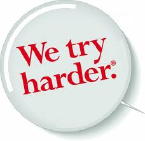
A family photo album web service 
While I'm on the subject of missing web services, here's another one I'm looking for -- and I'm fairly sure this one exists, and I'm interested in people's recommendations.
My mother put together a family photo album, which I scanned. So now I have a folder full of page images, and we want to go to work with with this material, but the family is distributed around the country. We're not going to sit around the kitchen table and do this in an afternoon. Rather, we're going to do it in our spare time, over a virtual kitchen table, over a period of months. It could be a very nice way to fill idle time, thinking about the past, and people we miss.
A venue for story-telling.
But right now what I have is a folder of images.
We need to do a bit of processing. Each page has several images. They need to be split up. And then there needs to be a place for a discussion.
It seems Flickr might be a good choice, but it doesn't have any integrated photo editing tools, does it?
I'm thinking of Picasa, but I don't like what Google is doing with all their products. What if my family photos become part of their kill-Facebook strategy.
And Facebook itself is out of the question. I don't have an account there, and plan to keep it that way.
A Broadway tickets web service 
I want to buy tickets to a Broadway play this Saturday and/or Sunday.
It's the height of the season, so the best plays are sold out.
Yes I know about the TKTS booth in Times Square.
 What I want is a ticket-broker site that takes a query like the one in italics in the first line of this post.
What I want is a ticket-broker site that takes a query like the one in italics in the first line of this post.
I know some of the shows have seats open. But so far all I can find is a hunt-and-peck interface. I can ask about individual performances of individual plays. That's going to take forever. A service like Hipmunk or Kayak for plays. Now that would be nice!
If you know of such a service, helllp! If not, get busy. ![]()
PS: To be clear, all the services ask you to pick a play first, not a time. I only have certain times available. I want to know what plays I can buy tickets for at those times.
PPS: In the VRM world envisioned by Doc Searls, I would write a blog post like this one, and the offers would start streaming in.
So you want to be an entrepreneur 
Here comes a "back in the day" story...
Sung to the tune of So You Want to be a Rock and Roll Star.
I used to be a Silicon Valley entrepreneur.
Back in the day, you made a product, put it in a box, put the box through distribution, helped retailers sell it, got back a little money, paid your employees, and hoped there would be enough to make some more product, boxes, etc.
 If you weren't one of the BigCo's the distributors would play games with your money. Eventually the games got so sophisticated, they had it worked out so you owed them more money than you made, so there was no way to get ahead. Unless you were one of the Big Ones. But even they hit the wall, and the software-in-a-box business went by the wayside.
If you weren't one of the BigCo's the distributors would play games with your money. Eventually the games got so sophisticated, they had it worked out so you owed them more money than you made, so there was no way to get ahead. Unless you were one of the Big Ones. But even they hit the wall, and the software-in-a-box business went by the wayside.
A few people got rich from that. Yes, it was a bubble. What you got paid for was not your ability to make money. But, rather the ability of the VCs to sell Wall Street on whatever it is they sold them on back then. We were part of the whole system that eventually hit the wall with Credit Default Swaps and huge bailouts and unrepentant bankers. There was a trickle-down. The closer you were to someone who actually made something, the less you got paid. You read that right, the less you got paid. I'll repeat it. If you made something you got paid less.
There was a lot of risk though, and that's what capitalism rewards. A lot of my contemporaries went splat, and had to take jobs working for a salary with no hope of getting rich. That was also a big part of the Silicon Valley reality. But they had jobs, and they paid well, and that's what most people want even if they dream about getting rich.
Mike Arrington is great at getting a cross-blog discussion going. There's no doubt that his personal story is the honest to god truth. He did work hard. And often with no hope of getting anything back. He did love what he did and he was good at it. He had the chance to rake in the big bucks, and he did. And no one can blame him for that. It's the right thing to do, imho. ![]()
A lot of young people are starry-eyed over the idea of being an entrepreneur. They think there's glory and wealth in their future. I don't think so, not for most of them. The bubbles have been getting bigger all the time. I guess it takes a bigger bubble to get rid of the headache caused by the previous ones. I don't know. But just like the mortgage industry needed unqualified borrowers to take their junk mortgages, so does the new VC industry, such as it is, need a huge influx of young people willing to drop out of school, and work their butts off. And most of them will go splat. It's a foregone conclusion.
I look at some of the kids who see themselves as entrepreneurs and think to myself there really aren't that many real honest to goodness people who are ready to do it. And I think that's a good thing! It's not a very nice lifestyle. And getting rich solves nothing, if you're one of the 1 percent that actually gets there. And what if you aren't? What have you got to show for it? You're a college dropout with nothing. If you go that route you have no one to blame but yourself if you go splat.
I'm afraid the adults are not levelling with the young folk. And we should be. Even the universities glorify the idea of being the next Zuck. That's like betting your future on winning the lottery. And you're not going to win the lottery. And you're not the next Zuck.
4G service on month-to-month basis? 
 I have a new religion when it comes to phones. I only do month-to-month, fully prepaid.
I have a new religion when it comes to phones. I only do month-to-month, fully prepaid.
If I want to switch, I don't have to call anyone and beg. I just forget to add more money to the account. Maybe I'll get a few emails reminding me I'm about to lose their service. But there's nothing they can do.
Now with that in mind, I'm interested in knowing if anyone here has signed up for a 4G plan that is month-to-month and is happy with the service they're getting. Obviously I have a bias toward NYC, but I travel, so it matters how it works elswhere.
I'm thinking of trying ClearWire. But I'm not sure if their service is any good. Hard to find much comment on blogs about it.
Arrgh Facebook is lying about me 
From Ben Hyde via email.
He searched for my name on Facebook, and they said that I only share some of my information publicly.
He sent a screen shot.
See, that's a lie. I deleted my account. I don't share any of my information on Facebook. Oh I get it. They're not actually lying, technically. It's true. I do only share some of my information publicly.
However their next statement is a fraudulent. "If you know Dave, add him as a friend or send him a message."
They don't have the ability to add me as a friend or send me a message.
He says he tried to friend me, and they didn't say they couldn't do it.
I was prepared to give them kudos for living up to their promise.
BTW, I don't really care if they have a page about me there from Wikipedia, as long as it's labeled as such. It's when they make representations that you can contact me through their service, that's really damaging. Because people will think they can reach me that way, and that I'm not responding when they try. Just think of the problems that can cause.
It's kind of like a phone company that won't forward your number when you drop them as a service.
 Community River, Day 3
Community River, Day 3 
The Scripting News community river is one of the most exciting projects we've done here in a while.
Here's the OPML for the river. Look at how many feeds are there.
I took a snapshot of the OPML so we can have a benchmark, and if this thing takes off, you all can have proof that you were among the pioneers that got the bootstrap going. I have a feeling this idea is going all the way.
 Another reason I'm so excited about this is the quality of the content. There are a fair number of people who blog about the same mix that I do. Tech, people, design, politics. Low-tech stuff that works. Empowering people. Learning about ourselves. And it's interesting stuff! I've already gotten some new ideas and perspectives. Folks, that's what I'm here for.
Another reason I'm so excited about this is the quality of the content. There are a fair number of people who blog about the same mix that I do. Tech, people, design, politics. Low-tech stuff that works. Empowering people. Learning about ourselves. And it's interesting stuff! I've already gotten some new ideas and perspectives. Folks, that's what I'm here for. ![]()
Each blogger has his own way of connecting with others that works for that blog. I've had comments here for the last few years, thanks to Disqus, but I find comments are good for brief notes tacked on to a post. When people start writing blog posts in the comments it stops working. It very much matters which "space" you're writing in. When people write in their own blog, the writing has to make sense mostly standalone. You get more interesting stuff that way. Comments tend to be very relative and therefore not so interesting. "You're right and btw, here's the product I'm selling," is the basic message of a lot of the stuff that gets posted here and taken down right away. The line between comment and spam is getting harder to find. If you can't find the value in posting a complex idea on your blog, then why should it be as a comment to my post? Only if you want to get some of my flow. And of course the people you want to reach have figured that out, long ago, and mostly don't pay attention to comments.
I'm also interested in trying more experiments with these feeds. Assuming we get a critical mass. And it's already driving ideas for the software that's running the river, which btw is free, and available for anyone to run. Mac or Windows. And this software does not have to be on a publicly accessible server, even if you want your river to be publicly visible. It can write static files to Amazon S3, which is a very economical way to host this stuff. For most people hosting a river there will cost pennies a month.
This is what I wanted. As the OWS folk say -- it's the beginning of the beginning. And I'm glad it's happening now! We're absolutely ready for it, knock wood, praise Murphy, IANAL, My Mother Loves Me and I'm not as stupid as I look. ![]()
 My community badge
My community badge 
We need a badge!
And... I'm not good at drawing pictures so I didn't even try.
I put this badge in the right margin of scripting.com, and linked it to the river.
If your site is part of the river, you can add it to your blog too.
And if you're a creative drawing-type person, feel free to give the badge a try! ![]()
 Is my Facebook account gone?
Is my Facebook account gone? 
 When I deleted my Facebook account, they said it would take them 2 weeks to actually delete it.
When I deleted my Facebook account, they said it would take them 2 weeks to actually delete it.
That was approximately 18 days ago.
I don't want to try to log in to find out what happened for fear that that would do something to resurrect my presence there.
But when I went to my URL, or at least what I remember my URL to be:
http://www.facebook.com/dave.winer
I got a message saying "This content is currently unavailable."
Not quite the definitive statement I was hoping for, but it'll do.
Looks like the account is gone. Thanks! ![]()
 A community river
A community river 
We now have a community river on Scripting News.
The feeds in this river are from people who read this site. It's self-selecting, at least so far.
I've also included my worknotes feed, a feed that lists code updates for the OPML Editor user community, and feeds for a couple of our community mail lists (all are low-traffic).
I asked in a blog post yesterday if people are part of the community, and if they have an RSS feed, and if so to either send it to me via email or post a link to it as a comment. We got over forty feeds! Pretty amazing for the first day. But then is it surprising that people who are reading this site on the Saturday after Thanksgiving are pretty hard-core about RSS?
I deliberately did not send pointers to that post to Twitter and other social places, because I want the feeds of people who are readers of the blog, who can find their way to a post here without much prompting.
Even better -- there are some excellent posts in the river. I found out about a new blogging service I didn't know about and learned that Blogger had made some serious improvements that I need to check out.
So far having a community river is much better than having comments! ![]()
I am of course also maintaining the OPML subscription list for the river (it's done automatically by the River2 software). If you use an aggregator that allows you to subscribe to OPML lists, you can just plug it in and kick back and you'll be getting a steady flow of news from and about this community.
Thanks everyone, and keep up the good work!!
 Why I use the Kindle Fire
Why I use the Kindle Fire 
 When I got my hands on a Kindle Fire, I wrote a piece -- with clear disclaimers that I might not feel this way after some time -- that I absolutely loved it. That piece was a little over a week ago. Now it's time to write a follow-up. With the disclaimer that there might be more follow-ups to come.
When I got my hands on a Kindle Fire, I wrote a piece -- with clear disclaimers that I might not feel this way after some time -- that I absolutely loved it. That piece was a little over a week ago. Now it's time to write a follow-up. With the disclaimer that there might be more follow-ups to come.
1. I still don't see the Fire and iPad as comparable, even though they do many of the same things. When I got my iPad, when it was new, I tried not to compare it to the Mac or netbooks, both of which I used, even though it did many of the same things.
2. There are a lot of things the Fire doesn't do today that I'm pretty sure it will do in the future. Lots of apps are missing. But I suspect they will show up. Installed bases attract developers, and Amazon is likely to build a big one here.
3. It has the kinds of bugs only version 1.0 products have. For example, when I buy a book on Amazon, nothing I do can get the Fire to recognize it, even if if I specifically tell the Amazon website to send it to that Kindle (I have many). However, when I reboot the Fire, it shows up right away.
3a. It's annoying that the controls don't allow you to decrease brightness to a comfortable level when reading in the dark. And the sound control doesn't allow it to get loud enough to hear some movies with soft dialog. (The iPad has the same problem. There are some movies you have to watch with headphones on to actually be able to understand the dialog.)
4. The small form factor is a big win. I choose to read books on the Fire, and when possible, watch movies on it, over my iPad, because it's so much easier to hold while lying down. It's the size of a paperback. A little heavier, but quite a bit lighter than an iPad. And the rubber body is easy to grip. Where the iPad slips out of your hands, and is cold to the touch, the Fire is warm, and it grips easily.
5. I use the iPad for email, for Words With Friends and for browsing the web. I do not use the Fire for any of those things, even though I know it can be used for those things. Not sure why.
6. I still love it, one week in. I would keep it even if I didn't use it because I want to see where Amazon takes it. I think it's a bargain at $200. I wouldn't yet recommend it to non-technical users, though I think it would be fine for kids to play games on, as long as there's a mom or dad nearby to get things working again when needed.
7. It is an Android, but there are strange things that work on Android that don't work on the Fire. I tried to install a piece of software that AC recommended, but it wouldn't work on the Fire. I was able to install it on my Android phone, a Nexus/S.
8. Another reason I use the Kindle Fire is competition. I would probably use any tablet that looked like it had a chance of attaining market share. When Apple has competition, they will have reason to give users more of what they want. There will be less of the kind of nonsense with them deprecating Flash. Companies shouldn't have that kind of power. I know Amazon is no better, but they are different. More choice is good for us all, even people who bleed in six colors.
 What will become of the Euro?
What will become of the Euro? 
If the Euro fails as there seems to be a consensus that it will, what does this mean for people who have their savings in Euros?
And what do the countries that gave up their old currencies for the Euro do? Will France re-create the Franc, and Italy the Lira. Etc.
Perhaps there will be some kind of exchange, where you can turn in Euros for the new currency. If that happens, won't the other currency just inherit all the problems with the Euro?
 Isn't this the same problem we're having in the US (and elsewhere of course) with the real estate. Only it seems worse. Because presumably the real estate still has some value. Does this mean the Euro has no value?
Isn't this the same problem we're having in the US (and elsewhere of course) with the real estate. Only it seems worse. Because presumably the real estate still has some value. Does this mean the Euro has no value?
If that's what's going to happen, it can't just be happening in Europe. It's got to happen here too. Has there already been a rush to the dollar from the Euro? If that hasn't happened, will that happen on Monday? When that happens -- what does that mean?
I'd like them to solve this problem so we can all go on living our lives. But the "them" is the problem. And will they solve it for us or just for their friends? (Pretty sure I know the answer to that question.)
 A podcast, a long one!
A podcast, a long one! 
I did a 36-minute podcast today on a variety of topics: ![]()
1. Software projects.
2. Community rivers.
3. Has politics changed?
Hope you enjoy! ![]()
 Are you part of this community?
Are you part of this community? 
If so, do you have a feed?
If so, I'd like to know the URL of that feed.
For now, please send it to me via email or if you don't mind being public, paste it into a comment in response to this post,.
I'm also going to add some feeds to the list. Some of my own, and some of people and orgs who I feel close to, or aligned with, or very familiar with.
This all will, of course, become this community's river (and an OPML list).
 Software projects I'm juggling
Software projects I'm juggling 
World outline -- Edit all your web stuff in one document.
Blorkmarks -- Using DNS to fight linkrot.
Instant outlining -- Narrate Your Work.
River2 -- River of News Aggregator.
Radio2 -- Minimal Blogging Tool (just does RSS).
Scripting2 -- Outliner-based blogging.
EC2 for Poets -- User-administrated servers.
Feedhose -- A hose that feed items travel over.
Editing code in outlines -- An innovation from the 1980s.
Live database, values visible as they recalc -- Ditto.
Object database is the namespace for scripts.
Realtime RSS --Updates without polling.
 Thanks for technology!
Thanks for technology! 
I've done a lot of Thanksgiving pieces, where I was thankful for people, things, places, ideas, freedom, food and in hidden symbolic language, love and sex.
This year it's about technology. ![]()
I write a lot of critical reviews here, that's what reviews are for -- to warn people about problems with products and hopefully to help the product creators aspire to more perfect user experiences. I mean no personal criticism with these critiques, after all I've already disclaimed that I make shitty software myself. With bugs! And so do you. ![]()
 It's not just about striving for perfection, but it's also about realizing when things work, when we got it right, when we got somewhere that matters.
It's not just about striving for perfection, but it's also about realizing when things work, when we got it right, when we got somewhere that matters.
One of my benchmarks for things working is I imagine showing what I'm doing to my grandfathers, both of whom I knew, and wondering what they would have thought. Would they have had the context to make sense of what we're doing? And then realize that it's been no more than 25 years since they were alive. A lot has changed since then.
On Twitter, my buddy Chuck asked if I could see the Macy's Thanksgiving Day Parade from my apartment. Of course I can! I got out my iPhone and took a picture and emailed it to him. It took just a few seconds. But what power! I paused and thought. I know my father would have understood it. But his father? I don't think he would have had the language for it. That's how fast our culture is evolving.
Of course while my grandparents might not have understood, we needed what they accomplished in their lives to be able to accomplish so much in ours.
In the recent discussion around the Isaacson bio of Steve Jobs, a lot of the criticism of my critique was that there is technology and humanity and they are subjects of different books. That's where we differ. They really are the same thing. Just study history and you'll see -- human expression and technology are inexorably interwoven. Utterly inseparable.
So that's what I choose to express thanks for this Thanksgiving. If you want to sing the title of this post to the tune of something, try Thanks for the Memory, which was Bob Hope's theme song. And thanks for technology! La la la la la. Etc.
Happy!
 Susan Kare's icons
Susan Kare's icons 
I ordered a copy of Susan Kare's book of icons.
I know it's going to be great.
She helped us out at UserLand with a set of icons which are still in use to this day. The favicon for this site is a Susan Kare creation.
She also did a sheet of icons for the 24 Hours of Democracy project.
There's a lot of love in her work! ![]()
 A man-on-the-street business
A man-on-the-street business 
If you're one of the people working on a startup and your idea didn't work out and it's time to pivot here's a sure-fire idea.
Get a video camera, and a bright attractive person to come with you to hold a mike and a notepad (just as props), probably a woman (to put people at ease) and go to the center of your town and get ready to do man-on-the-street interviews.
But not just any kind of interview.
The question is this: Tell me about a company or product that sucks.
 Spend a couple of hours doing these interviews. Go back to the office and review the tapes. You probably won't have to. One of them will stand out. That's the one you feature for that day or week.
Spend a couple of hours doing these interviews. Go back to the office and review the tapes. You probably won't have to. One of them will stand out. That's the one you feature for that day or week.
Repeat.
We get enough messages saying this product is great or this company really cares, and we know it's all bullshit. They don't care, and we're not even customers, rather we're a business model. This came home to me yesterday sitting in a theater waiting for a movie to start. The theater is completely full. Not one empty seat. So we're not waiting for anyone to show up. And they play commercial after commercial. So much so that there were audible groans in the last couple of previews before the movie started. I'd not heard that before.
Life is filled with these kinds of humiliations. We love to hear these stories and we love to tell them.
How will you make money? Well, the companies will advertise. That's how little they care about what people actually think. It'll be a very very popular site.
If you want to throw me some stock, that would be great. Or hire me as a creative consultant. I'm in NYC and am available. ![]()
PS: Here's an example of a man-on-the-street rant from NakedJen. In this case the company-that-sucks is Humana.
 The idiocracy of social media
The idiocracy of social media 
 Half the comments I get on Twitter are part of a "media strategy."
Half the comments I get on Twitter are part of a "media strategy."
Which means someone read a book that said if you want to achieve success you have to "engage" with people.
I bet Klout has something to do with it. If they get a reply from me, that counts as a certain number of points toward their score. Which theoretically I guess gets them consulting business, working on other people's "media strategies."
So they ask questions a machine could come up with. I recommend an author. They ask if they should read one of his or her books. I don't know.
People must realize, don't they, that this is all pointless. It's a bubble on a bubble on a bubble on a bubble. When you dilute things that much, is there really anything left?
And Twitter, please please please give us a way to delete items in our Replies tab. I've seen this insipid comment once. That's one too many times. And I'm going to see it twenty times until it scrolls off. This is seriously inhumane.
 Why Jobs chose Isaacson
Why Jobs chose Isaacson 
I've now listened to 3/4 of John Siracusa's podcast review of the Walter Isaacson biography of Steve Jobs.
The first half of the second installment focuses on fanboi theories of why Steve made the perfect decision in choosing Isaacson, but I agree with Siracusa, it was a terrible decision. My guess is that he didn't put a lot of thought into the choice. Isaacson is exactly the kind of reporter he worked with for his whole career. People who don't have any idea of what he does, or how tech products are developed. Who tell the same wrong heroic story over and over, one that sells magazines, but does not capture the process of developing tech products. This is who tech journalists are.
 Even the smartest tech reporters have no idea how technology development works. And while Jobs did, obviously, understand how it works, intimately -- he deliberately drew a false picture for the reporters. So almost all the stories you read are fiction, made-up, folklore and myth. And the real story remains mostly untold.
Even the smartest tech reporters have no idea how technology development works. And while Jobs did, obviously, understand how it works, intimately -- he deliberately drew a false picture for the reporters. So almost all the stories you read are fiction, made-up, folklore and myth. And the real story remains mostly untold.
So Jobs had no incentive to choose tech reporters to work who could think for themselves. Usually those people, when they showed up, were the ones Jobs actively shut out. Jobs was no friend to journalism, or blogging. He had no respect for other people's speech, he was a massive control freak. In other words he got the biography he deserves. One that's perfect for Steven Spielberg movie about his life. It will be shallow and wrong in huge numbers of ways, and it will be very popular. And people who go to see it will think this is how products are developed.
Jobs didn't have to control every word Isaacson wrote, and Siracusa is right that Isaacson would have written about any attempt to control, because it's something he understands really well, where technology is something he understands not at all. But Jobs didn't need control, he determined what the story was going to be by picking the biographer. And got the mediocre result that was certain to come.
I wish Jobs had had the guts to go with someone who had a deep intellect, and curiosity about who his subject was, and was tireless at getting the information from the sources who were open, for that brief period, after having been closed for so long. There was a story here, and a willing subject, and the story is probably lost.
But don't blame Isaacson for that, blame Jobs. He wasn't as excellent a person as he could have been. If he wanted his children to really know him, he would have done well to tell the story himself, or find someone who had depth and real historic perspective and ambition.
PS: In my previous piece about this book I volunteered eight authors who could have done an interesting bio of Jobs.
 Hangin on a thread!
Hangin on a thread! 
It might just be me, but everywhere I look, the institutions I grew up accepting as constants are in pretty shaky condition.
 The economy is hanging on a thread. Last time we got into really deep shit, we solved the problem by building another bubble. This is something we, as a species, are good at. We depend on it. It's the illusion we create that there's meaning to the things we say have meaning. Of course they all translate into money, and money has no intrinsic meaning. Ron Paul, if he gets this, only admits to the first layer of the onion being a scam. The problem is it's a scam all the way through to the core.
The economy is hanging on a thread. Last time we got into really deep shit, we solved the problem by building another bubble. This is something we, as a species, are good at. We depend on it. It's the illusion we create that there's meaning to the things we say have meaning. Of course they all translate into money, and money has no intrinsic meaning. Ron Paul, if he gets this, only admits to the first layer of the onion being a scam. The problem is it's a scam all the way through to the core.
The reason this was a supportable illusion in the past is because we had something to do. Our job was to invent enough technology and deploy it, and educate our people on how to use it, to overcome nature. How would we know when we got there? When most of us live our natural lifespan, and can reasonably expect that in our lifetimes we will not be wiped out by a flood, fire, famine, pandemic, something nature did.
Fortunately or unfortunately, depending on how you look at it, sometime in the last 100 years we got there. And we kept building. Until it was impossible to teach us how to use the civilization we had created. Computer networks are the latest instance. The bubbles we create these days are basically features of the computer networks. When the Chairman of the Fed prints money he doesn't actually print anything. Somewhere in some data bank somewhere a disk changes a value. A number increments. That's all.
When a hedge fund makes a bet, it's a piece of software running somewhere talking to someone else's software.
Meanwhile, oil is either running out or destroying the environment. You pick the one you like best. ![]()
Shit is going to happen. Enjoy life now! ![]()
 Podcast postscript to Monday's podcast
Podcast postscript to Monday's podcast 
A rambly 1/2 hour of Sunday morning musings about this and that. ![]()
 Your favorite tech podcasts?
Your favorite tech podcasts? 
I had a great time doing the Stack Exchange podcast last week with Joel and Jeff.
I want to do more of these, on tech podcasts you listen to and respect.
What podcasts do you like, who you think would make for interesting conversation??
Updates: Ian Landsman suggests 5by5.
 I love my Kindle Fire
I love my Kindle Fire 
 I just started using it yesterday, so I could end up not-loving it, but so far I think it's a great product.
I just started using it yesterday, so I could end up not-loving it, but so far I think it's a great product.
I like the small size, the feel of it (warm where the iPad is cold). But most of all I like the $200 price. Remember, I'm the guy who liked netbooks because they were so inexpensive.
The truth is, a lot of people don't have the kind of money that Apple users do. The new Kindle Fire makes iPad-like functionality available to them.
And for what I use the iPad for -- reading, watching movies, playing Words With Friends, it's perfectly capable.
And it works real well (surprise) with Amazon, which has my credit card on file, and delivers stuff to me a couple of times every week, or so it seems.
Like I said, I could come to hate this thing. It happens. Or feel ambivalent. But right now, I'm having the newbie good vibe glow. Love is in the air. Nice product. ![]()
PS: A commenter says (rudely, so I moderated it) that I wouldn't love it if it came from Google. So funny. It does come from Google. This is very much an Android device. You can't miss that. It's got the Android taste all over it. I also use a Nexus S as my cell phone. So I'm an Android person. Someone forgot to check his fanboi assholiness at the door. ![]()
 Typecasting
Typecasting 
Simple thought.
People assume, incorrectly, that if you understand technical arcania, you can't understand other things.
So they only want to hear what you have to say about the tech stuff.
People even say "Dave stick to tech." Which means "I can't think of any other way to respond to what you just said." To which I push my glasses down my nose and look over the top of them, right at you and tell you to fuck off. ![]()
I pride myself on being able to understand anything I need to understand. So I feel my opinions on things other than the web and math and programming, are just as well-developed as my ideas on technological issues. I've spent 56 years, so far, thinking about it all. Learning and asking questions, and keeping an open mind.
Unfortunately, I've always had to overcome other peoples' assumptions.
Same goes for age, gender and race. In theory, you don't get to sing the blues with soul if you're a middle-aged, white male. That's bogus!
As Ringo Starr (a middle-aged white male) once sang: You gotta pay your dues if you want to sing the blues.
Heh. I think I've paid some dues.
Just sayin.
 People die, technologies don't
People die, technologies don't 
 The tech press will happily call things like Flash and RSS dead, when the word is meaningless, and incorrect. Both are technologies, not organisms. They were never alive and continue in wide use, and will likely continue for decades to come.
The tech press will happily call things like Flash and RSS dead, when the word is meaningless, and incorrect. Both are technologies, not organisms. They were never alive and continue in wide use, and will likely continue for decades to come.
But when it comes to people dying, they won't use the word.
Words mean something. Writers and editors should know that and appreciate it, and not de-value them.
When Steve or Ilya die, it is surely sad. But the accurate statement is Steve is dead. Not Steve passed on. Relatives, fans and friends can soften the blow, if they want to. But reporters should use the real word.
BTW, you never know, the supposedly dead technologies might start growing again. It happened with Apple, long after people said they were dead, they now are the most highly valued corporation in the world. But organisms that are dead cannot start growing again. That's what the word "dead" means. So as an analogy it doesn't work either.
 Preserving Manila sites
Preserving Manila sites 
When you've been blogging as long as I have, you leave behind a trail of sites that need to be kept accessible. The longer you blog, the more maintenence work you accumulate. Non-technical people don't seem to realize that the sites don't just take care of themselves. The environments they run in change, in so many ways.
A bunch of these sites are Manila sites, which has meant that I've had to keep a Manila server running. Long-term this isn't viable, and there are problems even in the immediate term. This last week the server that's hosting the Manila sites was getting some abusive traffic. This meant that the legacy sites were mostly inaccessible. And I found out how much developers and writers depend on them. I want them to be able to depend on them, even after I die. So this week I decided to do something about it.
 Migrating Manila sites to static sites has been something I've wanted to do for a long time. I've even had some starts at it, but investing in the past is always less interesting than investing in the future. So I never quite completed the projects.
Migrating Manila sites to static sites has been something I've wanted to do for a long time. I've even had some starts at it, but investing in the past is always less interesting than investing in the future. So I never quite completed the projects.
I picked up on one of those starts, a tool called staticManilaSites.root, and got it to process the XML-RPC site. I had used this tool previously for some simpler sites, like bloggercon.org and thetwowayweb.com. But the XML-RPC site was one of the first Manila sites, and it used some features in one-off ways, that later versions of the software made impossible. But I got through that.
I built another tool called redirector.root, that I pointed xmlrpc.com at. It in turn redirects to the new S3 static site, xmlrpc.scripting.com. I had to point through an intermediate host for a couple of reasons: 1. There's no way to point a root domain at an S3 bucket, since the pointer must be a CNAME. 2. There is no equivalent of an .htaccess file for redirecting, on Amazon. The URLs had subtle changes. Like spec changes to spec.html. That's why I needed a separate redirector app, and it couldn't be a static site.
At first, I used a temporary redirect in case I made mistakes, or wanted to change strategies. When I was comfortable that everything was working, it changed to a permanent redirect. Hopefully the search engines will adapt, and stop pointing to the old pages, and eventually the redirector will only be needed for the various incoming pointers from sites that build on XML-RPC. There are a lot of them, and they generate a substantial amount of traffic. I know people think XML-RPC is "dead" but you'd be amazed how much development goes on in this supposedly dead protocol (which is one of the reasons I argue whenever people use that awful word). I mapped the four versions of the domain to the new S3 bucket. xml-rpc.com, xmlrpc.com, xml-rpc.org and xmlrpc.org. Eventually I'll probably give up all but one of these domains.
I also moved the domains, as I worked through them, to hover.com. I feel better about working with them than I do with GoDaddy. They're very anxious to please, and I feel like I'm one of their first customers, but I've also known them for a long time (it's part of Tucows).
I also wrote a script to scrape all the urls out of the site into a table, where I manually review them, and eliminate all the pointers that aren't images or downloads. Then I wrote a script that moves the assets from their old locations, which are pretty scattered, into a sub-folder of the bucket that contains the site. This reduces the probability of images or downloads being lost. Luckily none of them were gone, they were all still there. Which is surprising for a site that's over ten years old, like xmlrpc.com.
Then I converted www.opml.org to dev.opml.org, which is also an S3 site. And now I'm almost finished with outliners.com, which is moving to outliners.scripting.com. Safing-up the outliners site is particularly satisfying, because it was a project I did in 2000 to safe-up work that was done in the 80s. That proves something important. Unfortunately we are nowhere near a stable situation too. It may feel right now that S3 is a very safe place to store static content, but it's likely that 10 or 20 years from now it won't be. I remember keeping stuff on 5-inch Apple diskettes, thinking that we'll always be able to read those. Heh. In 2011 you can tell how silly an idea that was. But in 1982, it would have seemed quite rational.
I feel at this time I have a process, albeit a manual one, for converting a Manila site to a static S3 site. I have to do the same for my father's and uncle's sites. And a bunch of other Manila sites. My goal is to be able to turn off the Manila server altogether, soon.
 Johnny Bloggerseed, day 2
Johnny Bloggerseed, day 2 
My campaign to get Josh Whalen to blog has met with success!
http://occupyyourbrain.tumblr.com/
It's great stuff. Really gives you a feel of what it's like inside Occupy Wall Street.
 Dave with Joel and Jeff
Dave with Joel and Jeff 
I did a 1-hour podcast on Tuesday with Joel Spolsky and Jeff Atwood.
It was a lot of fun. Smart guys.
Here's their writeup.
 Google search on iPad is bad design
Google search on iPad is bad design 
A while back Google changed the way their search engine works on the iPad. And I'm reminded of how much I dislike the change several times every day, because I use the iPad a lot, and of course I use Google search a lot too.
Here's the problem, illustrated in a screen shot.
Look at all the wasted space. There is a link at the bottom of the page that takes you to "Classic" view, which is the normal Google search results page.
I wouldn't mind this if it remembered my preference. Or if the Classic link was at the top of the page.
Or if they just skipped the feature.
Designers really need to hear the following, loud and clear: The iPad browser is fully capable. It doesn't need you to treat it differently. You're fighting with users when you get fancy. Just stick with what works on the desktop. And if you must screw around, then make the opt-out obvious and painless.
 NY Times Examiner
NY Times Examiner 
 The Times certainly loves itself. No problem there.
The Times certainly loves itself. No problem there.
But it also cannot criticize itself. And that's a major problem.
It's really odd that they can't do it, because the Times is really good at criticizing other forms of writing and creative work. Their book critics, movie, theater and TV critics, even their critiques of software lead their fields and are considered by many to be authoritative.
But when they decided to criticize themselves, through the public editor who is supposed to speak for the readers, what you end up with is apologies and explanations, never anything remotely like what the Times deserves. As a result the editorial coverage of the Times suffers.
That's why I'm glad to see the blogosphere has embraced the problem with the NY Times Examiner site.
This morning they took apart a Bill Keller piece that I had read, and had not considered who wrote it. I accepted at face value the facts they recited. Even thought to myself a few times "Oh I didn't know that." Turns out there's a lot in the Keller piece that doesn't stand up to scrutiny.
To get an idea of how bad this is, imagine developing software without bug reports from users. That's the problem they're dealing with.
One day the Times will have the courage to devote a serious amount of their space to self-criticism. To teach the readers how to file bug reports, and actually learn how to listen to them. And their product quality will soar. Until then, we should all be following the Examiner so there's at least some balance to the reporting in the Times.
 Readability's new API
Readability's new API 
A brief note of congratulations to Readability, for releasing what appears to be a comprehensive and useful API.
Reading is a big part of what we do on the web. It's good that they're investing in making it work better. And of course it's important that those features are available to other developers to build on.
I plan to integrate their URL-shortener with my minimal blogging tool.
I released a glue table for it just now. It has one entry-point, that shortens a URL.
Here's an example of a short URL that was created with Readability.
Again, congrats, and thanks! ![]()
Update: There's a problem. About half the time I get sent to a page that's definitely not readable. Example.
 Foley and Zuccotti today
Foley and Zuccotti today 
I had a meeting downtown this evening, so I took a detour and visited the occupation at Foley Square on my way.
Then walked to Zuccotti Park.
The scale of what's going on at Zuccotti is still huge. Foley is a quieter affair.
And a video showing how chaotic things still are at Zuccotti.
 Yet another feed of mine!
Yet another feed of mine! 
I might have more feeds than anyone you know.
Or not...
Here's another one.
http://static.reallysimple.org/worldoutline/dave/rss.xml
It contains my worknotes, and when I write a new howto, it will have a pointer to that as well.
This is a good one to follow in Google Reader, or whatever you use to follow feeds.
It's basically a feed of the new documents I've created as part of my world outline.
This is the third movement of my new software symphony.
The other two being: minimal blogging tool and river of news.
Enjoy! ![]()
 Occupying
Occupying 
 Call me Johnny Bloggerseed because, when I see a story with a Natural-Born Blogger in the middle of it, I am unrelenting. I don't take no for an answer. Just ask Doc Searls, an NBB if there ever was one. And ask Josh Whalen, one of the OWS occupants, and a longtime member of our community here on Scripting News.
Call me Johnny Bloggerseed because, when I see a story with a Natural-Born Blogger in the middle of it, I am unrelenting. I don't take no for an answer. Just ask Doc Searls, an NBB if there ever was one. And ask Josh Whalen, one of the OWS occupants, and a longtime member of our community here on Scripting News.
Josh has a blog post ready for almost anything having to do with NYC, bike riding, the East Village, and the unfortunate state of our system. He's a smart guy. I wish he would blog. Not as a spokesperson for OWS, rather as a person inside it, so those of us who are outside would have a story to relate to.
Humans are the story species. We need one to grasp onto something in order to even think about it. I was a math major in college, and that's thinking without a story. Hard to do. But I loved computers because there is a story about every bit of code, and the apps they form.
Anyway, I'm rambling. As is my right. ![]()
I read somewhere that OWS should declare victory and become whatever it was meant to be next. I've felt the same way for a while, but wanted to be very careful about saying anything. Not my place really. But now I think it's time to start considering how the story plays out from here.
Occupying is a state of mind. We have learned a lot about that in the last two months. We need to occupy our lives, most important of all. Think about what we're doing with them, both individually and collectively. Really occupy our space.
That means insisting on something better than the lesser of two evils.
Not accepting that the entertainment business owns our intellectual and creative lives.
Seeing the creativity and value of the expression of everyone who wants to be part. All NBB's welcome.
If the OWS people feel any disappointment now, we know what it feels like, all of us. But it pushed us in the right way, and gave us a new beginning. Now let's think about what we want to do with that new beginning.
Just some thoughts. For now! ![]()
 10 unheard-of techies
10 unheard-of techies 
Thanks to Royal Pingdom for including me in the list of ten techies.
This will of course stoke the flames of the perma-mystery: Who Invented RSS.
We will not recite all the usual rebuttals, but rather include them by reference. ![]()
![]()
 dnsimple's new ALIAS feature
dnsimple's new ALIAS feature 
I read this morning about a new feature on dnsimple.com called an ALIAS record. I found the language confusing, so I wrote up what I thought it was saying and ran it by Anthony Eden for confirmation. He says this is accurate.
 First, CNAMEs are wonderful. It would be great if everything could be a CNAME. Obviously some names have to point to IP addresses, or nothing would resolve.
First, CNAMEs are wonderful. It would be great if everything could be a CNAME. Obviously some names have to point to IP addresses, or nothing would resolve.
DNS has a limit. The top level of a domain must be an A record, it cannot be a CNAME. For example, scripting.com cannot be a CNAME, it must be an IP address, because that's what the value of A records are. IP addresses.
However if I use dnsimple.com, I could make the value of scripting.com an ALIAS record whose value is s3.amazonaws.com. Then, when a request comes in to lookup scripting.com, it looks up s3.amazonaws.com, gets an IP address and returns it. The caller doesn't know or care how they got the address.
 Republicans on CBS
Republicans on CBS 
 A few comments on the Republican debate last night.
A few comments on the Republican debate last night.
1. Only two of the candidates, Romney or Huntsman, could bluff the rest of the world as President. If any of the others were elected it would be even more disastrous than Bush II. Most of them are appallingly bad.
2. Why do people think Gingrich is so smart? I spent some time studying this. He uses flowery academic-like language. I think this impresses people.
3. Gingrich, Cain, Perry, Santorum, Bachmann -- these people could run for president of a banana republic. They talk like people trying out to run a military junta, not to become the president of a constitutional republic.
4. Most interesting idea of the night goes to Huntsman, who said change will come from Chinese bloggers. Good point and he's right. But he's overlooking American bloggers. And Wikileaks is part of that. If there was a Chinese Wikileaks presumably he'd be cheering. We can't keep our oligarchy if there really is a sea change underway. And of course I believe there is.
4a. Huntsman is an idiot in every other regard.
4b. Most interesting idea? No, it was the only interesting idea.
4c. Herman Cain is accused of doing more or less what Julian Assange is accused of. At least they're very similar. But if I want to give $100 to Cain, no problemmo. But the banks won't let me give money to Assange. Neither one of them has been convicted of anything. What's wrong with this picture.
5. There ought to be a rule if you're going to run a debate, you must broadcast the whole thing, and make it available online to anyone, in realtime. On WCBS in New York, they only carried the first hour. They said go to the Internet for the rest. I did. But the website wasn't streaming. Presumably they weren't prepared for the load. This is better than the debate in 2008 where ABC broadcast a debate three hours later on the west coast. But progress is happening too slowly.
6. Perhaps debates should all originate from the Internet and be available to any broadcaster who wants to carry it.
7. I thought the moderator's challenges to the speakers were right on. We know what due process is Newt. Thanks for pointing that out to him, Scott. The last debate was great in this way too. The CNBC moderators didn't play the never-never-land game with these guys. Unfortunately the candidates stuck to their nonsense talking points both times.
 Final note. It's sad beyond belief that this is the best the Republicans can do. Their process is broken. That Rick Santorum is considered a "serious" candidate for President is ridiculous. Any of them would be a total disaster. Maybe it was always this way. But I seem to remember having a bit more respect for the people we were considering for this job.
Final note. It's sad beyond belief that this is the best the Republicans can do. Their process is broken. That Rick Santorum is considered a "serious" candidate for President is ridiculous. Any of them would be a total disaster. Maybe it was always this way. But I seem to remember having a bit more respect for the people we were considering for this job.
I watched a video of the Rolling Stones performing Beast of Burden in 1978 during one of the commercial breaks. Any of those guys would have made a more credible candidate. Even if they were stoned. Even if they sang their responses to debate questions. Even if they're musicians and not politicians. For crying out loud, Herman Cain is a Rush Limbaugh clone. Bet Sarah Palin is kicking herself for not running. I bet Rush is kicking himself too! He'd fit right in there.
 An idea for Current TV
An idea for Current TV 
I love that Current TV made the bet on Keith Olbermann.
 And I appreciate the conundrum they face. It's a bootstrap. People won't be talking about him the way they used to as long as most people aren't watching. And it's hard to watch him, for the simple (and silly) reason that people don't know what channel he's on. At least that's what I think is going on.
And I appreciate the conundrum they face. It's a bootstrap. People won't be talking about him the way they used to as long as most people aren't watching. And it's hard to watch him, for the simple (and silly) reason that people don't know what channel he's on. At least that's what I think is going on.
I've been thinking about this chicken and egg thing. On the one hand, they want people to watch Olbermann. That would imply making Countdown available via the website, in addition to cable. On the other hand, they have a big advantage over other websites, distribution on cable networks. That's still important. However, their viewership is tiny compared to their competitors, in either medium. And they have a huge star whose talents are largely going to waste.
Key thing: There are lots of people who would watch Olbermann every night if it were easier. And tweet about what he said. And what his guest said.
So here's what I suggest.
If you follow KO on Twitter, you can view the show on the web.
I might add another qualification. That a code is broadcast on Twitter every evening from the KO account. So it's not enough to have a Twitter account. You have to be connected to it in some way if you want to watch the show.
Now you've got a network that can grow. And you can use the cable distribution for high-def, or whatever. If you think about it, why should you care how people get to you. As long as they get to you.
I'd roll the dice.
And of course if more people were watching you'd get more interesting guests. ![]()
PS: Broadcast the code on an RSS feed as well. Thanks!
 Mike's "Rick Perry" Moment?
Mike's "Rick Perry" Moment? 
 You know how they talk about "senior moments" when you look for something in your memory and it just won't come back. I have them all the time. And you get them more often, it seems, as you get older.
You know how they talk about "senior moments" when you look for something in your memory and it just won't come back. I have them all the time. And you get them more often, it seems, as you get older.
That's kind of like what happened last night on the Republican debate to Rick Perry. Everyone says it'll go down in history as a historic gaffe of massive proportion, along with Jerry Ford, Dan Quayle and the guy who was running with Ross Perot who couldn't remember his own name (so why should we).
This came up for me a few moments ago, when I was trying to summarize what had happened to Mike Arrington when he was interviewed for a CNN special that's airing on Sunday. Mike couldn't name a single black entrepreneur.
It turns out Mike does know more than one black entrepreneur, and had even invested in one with his new VC fund. So unlike Perry who not only will not be President, but if he were would not shut down the Departments of Energy, Commerce and Education, Mike just had a memory malfunction. Nothing more than that. Is that news? (But Mike himself has been guilty of stretching the truth to build interest in his content, so in fairness, he doesn't really get to complain about this. Not that that has stopped him from complaining. Heh.)
Surprising that CNN is making such a big deal about it.
Update: You know it's bad when your name has become a punchline.
 Autumn colors in Central Park
Autumn colors in Central Park 
Today may have been the peak of color in Central Park for the season.
Here's a set of seven pictures I captured today on a walk-around.
While walking I listened to Joel Spolsky and Jeff Atwood on the Stack Exchange podcast. I'm going to be their guest next Monday, so I thought I should get an idea of what it's like.
 What I mean by RSS
What I mean by RSS 
I can't tell anyone how to use the term RSS, but I can tell you how I use it.
 RSS is a family of syndication formats that traces its roots far back in the history of computer science. The most widely used version of RSS is 2.0. I wrote the spec for that version, created software that read and wrote it, and helped content providers, notably the NY Times, get online with it.
RSS is a family of syndication formats that traces its roots far back in the history of computer science. The most widely used version of RSS is 2.0. I wrote the spec for that version, created software that read and wrote it, and helped content providers, notably the NY Times, get online with it.
We also adapted RSS to transport what I thought of as "audio blog posts." Working with Adam Curry and others, this became podcasting.
There are lots of different kinds of software that produce RSS and consume it. Each of them has its own name. But they are not RSS. They are applications that do stuff with RSS. That, imho, is a very important distinction.
 I deleted my Facebook account
I deleted my Facebook account 
Last night I deleted my Facebook account.
 According to Facebook's rules, they will wait two weeks before actually deleting it. This seems reasonable. I've been on the other side of this, and it saves them the grief of having to deal with people who impulsively delete their accounts and then decide they want them back. Two weeks is enough time to decide if you really mean it.
According to Facebook's rules, they will wait two weeks before actually deleting it. This seems reasonable. I've been on the other side of this, and it saves them the grief of having to deal with people who impulsively delete their accounts and then decide they want them back. Two weeks is enough time to decide if you really mean it.
Already people are wondering how long this will last, as if being part of Facebook is a permanent thing, like having a driver's license or passport.
For me it was not an impulsive decision. I hadn't logged on to Facebook since we discovered that you couldn't log out, starting with this post on September 24. But I had never been a big Facebook user. I think this is partially because I'm an early adopter and Facebook was developed for college-age people, and I'm not part of that group.
Twitter is a different story. I was a very early adopter, and it's part of my online flow. But I would like to quit Twitter. But doing it requires a lot more unraveling than with Facebook.
I just emptied out the mailbox that accumulates all the Facebook emails. It's true, there are people who seem to depend on Facebook to reach me. Well, I've missed there messages for over a month. We'll all survive this.
Bottom-line: I know from experience that it's bad to depend on a for-profit company to give me a free service that is supposed to not feel like it's free. Facebook makes it difficult or impossible to maintain an archive copy of the stuff you post there, so, knowing this, I never posted anything there that wasn't a copy of something I posted elsewhere or something I just didn't care about. And I hate the idea that they devise ever-more-sneaky ways of tracking you on the web. And I'm not one of the people who uses the word "hate" when I mean "mildly dislike."
But I'm not ruling out never going back. It's possible they'll add a feature that I feel I have to check out. Or they may relax their data export and import policies. Or there might be a law passed that everyone must have a Facebook account. All of these would be reasons why I might create a new account after my account is deleted, two weeks from yesterday, on November 23.
 Future-safing hosting.opml.org
Future-safing hosting.opml.org 
 Shortly after Frontier was released under the GPL in 2004, I started a project to create an OPML-based blogging tool. It was a rush project, back when I did those. It did a dynamic rendering of OPML files that were stored on a static server. It used a process called upstreaming to move content from the desktop to the server. So all you have to do was edit and save OPML files, one for each day, in a calendar-structured folder, to have your blog. I don't think a blogging tool had ever been configured that way before. It attracted a small community, one that eventually became embroiled. Growth stopped, people left, and I was stuck with a web app and a base of content.
Shortly after Frontier was released under the GPL in 2004, I started a project to create an OPML-based blogging tool. It was a rush project, back when I did those. It did a dynamic rendering of OPML files that were stored on a static server. It used a process called upstreaming to move content from the desktop to the server. So all you have to do was edit and save OPML files, one for each day, in a calendar-structured folder, to have your blog. I don't think a blogging tool had ever been configured that way before. It attracted a small community, one that eventually became embroiled. Growth stopped, people left, and I was stuck with a web app and a base of content.
At some point I turned off the dynamic server, to a few people's surprise, no doubt. But it wasn't something that had a future. And that's the lesson we've all learned. I've never pretended that there weren't two sides to the problem of depending on free services. I've been on both sides of it. I militantly avoid it now, instead insisting that people host their own servers. I've made it easy for them to do it, writing a tutorial, and building software based on that model. I think eventually it will catch on.
Anyway, back to the OPML-editor based blogging system of 2005.
I have an Apache server that I still must use to host scripting.com. The only reason for this is that it can't be a CNAME, and Amazon S3 buckets must be CNAMEs. An awful limit, as far as I'm concerned, and one that's costing me monthly in dollars, and in a much worse way, in added complexity. That's my enemy. I'm trying to make it so that my sites maintain themselves as much as possible. I won't always be here to do the work. And I'd like to see some of the content be long-lived. Like Stewart Brand with his 10,000-year clock. ![]()
Anyway, even though it will cost me a bit of money to move hosting.opml.org, I'm doing it anyway. It's in process of becoming an S3-hosted site. With their new feature that allows CNAME-based sites to be hosted there with index files, I can move this site. I wrote a howto explaining the process.
I'm going to make the worldoutline software do something intelligent with these sites. If you have a site in there that's got content you'd like to view, it should be possible at some point.
Now if there were just some place I could deposit a bit of money to be sure that the storage bill is paid on that bucket, for perpetuity. Seriously, I think that for content like this we're at the point where its pretty safe to say it'll be around as long as human civilization. Except for how to pay for its preservation.
 Still riding on November 7!
Still riding on November 7! 
It's a glorious day for a ride.
 Bright sunshine and warm. Over 60. No wind to speak of.
Bright sunshine and warm. Over 60. No wind to speak of.
Embarking from my Hell's Kitchen apartment, I headed up Central Park West to 77th St and across to Riverside Park. Up a few blocks, under the Henry Hudson Parkway over to the river and up to 130th St. Turnaround. Cut back east on 95th St, and south through Central Park and the teardown of the finish line of the marathon. A lot of maneuvering for not much advantage. I think the next ride will be a couple of laps around the park.
But like I said, what a day!
Map: 9.5 mi, 1 hour 8 minutes.
PS: I made a mistake and Cyclemeter thought I was walking not riding, though you'd imagine it could tell the diff somehow. I ride pretty slow. Do some people walk that fast? Probably! ![]()
 Martin helped launch RSS
Martin helped launch RSS 
A quick note of appreciation for Martin Nisenholtz, who is leaving the NY Times.
 The Times will of course tell the story of what he did for them. But he also made a very large contribution to the web, through RSS 2.0. It was his decision, to license the flow of NYT stories to UserLand Software, in March 2002, that made it possible for us to provide their huge story flow to users of our product.
The Times will of course tell the story of what he did for them. But he also made a very large contribution to the web, through RSS 2.0. It was his decision, to license the flow of NYT stories to UserLand Software, in March 2002, that made it possible for us to provide their huge story flow to users of our product.
We also decided to make this flow available to our competitors, most of whom didn't exist yet. That was when the arguing stopped in the tech world, and we all got busy developing software. And the publishing world had a leader to follow, and that's what they did. This was made possible by an act of faith by an exec at the Times. That person was Martin.
So I think it's important to note that the man has not only contributed to his organization, he also made a serious contribution to the open Internet.
 The NYT == WikiLeaks
The NYT == WikiLeaks 
 The NYT has always been a supporter of the First Amendment. In print. For itself. But its record of supporting it for writers on the web has been spotty. And when the chips are down, when we need a friend the most, you can be pretty sure the Times will be on the other, wrong, side.
The NYT has always been a supporter of the First Amendment. In print. For itself. But its record of supporting it for writers on the web has been spotty. And when the chips are down, when we need a friend the most, you can be pretty sure the Times will be on the other, wrong, side.
It happened in the very early days of the web, with the Communication Decency Act. The Times, and many politicians of both parties, including the President and Vice-President (Clinton and Gore) wrote, passed and signed legislation that basically said the First Amendment doesn't apply to the web. Their apologists say they knew the courts would overturn the law (they did) but that's not a good answer. What if someday the courts are just as cowardly as the other two branches. It won't go down easy among web users. But it would be nice if those people who always heap praise on themselves for their courage, actually delivered when it counts.
And it's happening with WikiLeaks. Obviously, the role they played was exactly the same role that the Times played. And if the Times deserves protection so does WikiLeaks. That's not just me saying it. James Goodale, their own lawyer who fought for them in the Pentagon Papers case in 1971 says so as well. Yet the Times keeps attacking WikiLeaks, in some pretty undignified ways, trying to draw a distinction between what they do and WikiLeaks, where no such distinction exists.
It happened again this weekend in a piece by David Carr, their media columnist. He asks if WikiLeaks is over. My answer, for what it's worth, is this. If WikiLeaks is over then the NY Times is over too. Because the NY Times is WikiLeaks and vice versa. No one needs a publication that only prints information that the government wants them to publish. It's as pointless as a road to nowhere. The Times only has value as long as it's willing to do things that create trouble in government (and of course elsewhere). The Times knows this, they brag about it. But for some reason they don't see themselves when they look at WikiLeaks. What's the difference? (See the subtext for my response to the usual arguments.)
I don't think either of them are over. I think the Times will live to leak again. And maybe WikiLeaks the organization is over (thanks to the banks who won't let us contribute to them, and the press that ignores that huge story, and the British and Swedish governments, obviously acting in consort with the US, in incarcerating Assange). But the reverberations of WikiLeaks are still very much being felt. And of course the net is going to be used to subvert secrecy of corrupt governments in the future. If I didn't believe that would continue, then I would feel there is no hope for mankind.
The Times doesn't have an exclusive on intellect. Their readers have quite a bit of it, and can get the information they want even if the Times doesn't want to provide it. The Times is on much more precarious ground than internet leaking is. Because they are still depending on a Maginot-like set of barriers to entry to keep the hordes away from their bastion. Sad that they still view the world this way. Because it changed a long long time ago. And WikiLeaks is the ultimate reminder, that we don't, any longer, even need them to expose corrupt government.
 Will users always be users?
Will users always be users? 
I love being a user, and I love myself, so therefore I can't help but love users.
On the other hand, most users insist on being cared for as if they were customers, and this is a mistake. If you aren't paying for the service you get, then you are not a customer. Lots of cliches go with this one, but the best one I've heard so far was in this piece by Steven Poole, published on Nov 3.
"If you're not paying for something, you have no reason to expect it to be there tomorrow."
Dear users, please tattoo that on your forehead so you can read it every morning while you're brushing your teeth or shaving or putting on your makeup. If you're not paying for it, you're a hamster in a cage, spinning wheels that propel someone else's engine.
 The Google Reader users got a wakeup call on that last week. And bless Google for doing that, because it happens to be in an area where we, developers who care about user choice, and user power, and open systems, and services as commodities, can do something to help.
The Google Reader users got a wakeup call on that last week. And bless Google for doing that, because it happens to be in an area where we, developers who care about user choice, and user power, and open systems, and services as commodities, can do something to help.
But in the meantime, users, please, seriously start thinking about where your data is, and how you can get it somewhere that you can care for it. And the data of members of your family and workgroup.
Each time around the loop we create users who wake up from this dream to realize the tech industry hasn't been taking good care of them. Just as I wish that one day the tech industry would overcome the short-sightedness of this approach, I wish users would have a memory from loop to loop, and not get complacent. But I guess that's just human nature, eh? Probably so.
Anyway, now is a good time to start thinking and acting.
 Warner cartoons of the 1930s
Warner cartoons of the 1930s 
I'm working my way through a collection of Warner Brothers cartoons, starting in 1930 and going through the 1990s.
I did this once, in an incomplete way, with the movies of the 1930s, and learned a huge amount about the evolution of an art form. I could compress into a few weeks what it took a creative industry a full decade to accomplish.
 The 1930s, a decade of depression and the buildup to World War II, was a hugely creative period in the visual arts. And it wasn't just the technology that was growing, it took a decade to figure out what worked from a story-telling and humor point of view. What gags worked and didn't? Are there stars in cartoons (yes, of course). You can see the development of Porky Pig, the first real star. He was at first a child, then a full grown man with a daughter. He was a hero and even somewhat of a villain. They tried out everything, until settling on a young adult mostly straight man to the eventual superstar, Bugs.
The 1930s, a decade of depression and the buildup to World War II, was a hugely creative period in the visual arts. And it wasn't just the technology that was growing, it took a decade to figure out what worked from a story-telling and humor point of view. What gags worked and didn't? Are there stars in cartoons (yes, of course). You can see the development of Porky Pig, the first real star. He was at first a child, then a full grown man with a daughter. He was a hero and even somewhat of a villain. They tried out everything, until settling on a young adult mostly straight man to the eventual superstar, Bugs.
I like to learn about the evolution of art in the 30s because it helps me understand better what's happing here in the teens of this century.
Here's Porky's Poultry Plant, 1936.
And I'm now in 1937, and from what they say on the Wikipedia page for Porky Pig, I'm about to see the star come into his full final form. Exciting!
 The tech industry is update-happy
The tech industry is update-happy 
I had a problem the other day that involved running a Java app. The problem was, apparently, that the developer, a large Taiwanese company that generally makes good products, had written the code a couple of years ago. It didn't run on any of my Macs.
Frustrated, I had an idea. I have a netbook that I haven't run in over a year, sitting in my closet. I imagined that they had tested the Java software on Windows, and since nothing had updated on the machine in a year, it might just work.
 My theory proved correct! It worked. I was able to run the configuration app and get on with the rest of my project.
My theory proved correct! It worked. I was able to run the configuration app and get on with the rest of my project.
But then I left the machine running, so the battery could charge, and hell broke loose. Every app on the machine, every little bit of system code wanted to update itself. Not only did it waste a ton of my time supervising all this updating, I could never be sure when it was finished. After updating a lot of stuff didn't run anymore.
Now the typical answer is this is good for the ecosystem, sweep out all the code that isn't being watched or maintained. And of course turn the poor user into a janitor for the tech industry and assume he or she understands all the questions that are being asked, and all the implications.
But in what way is breakage good for users? (It's not.)
In contrast, if I leave a car parked in front of my house, and go away for a while, when I come back, the radio still works. So does the heater, and the engine. I've had batteries go bad while cars sat idle. Once I froze an engine block in a Wisconsin winter. But none of this was done to the car, deliberately, by companies in the car industry. Generally when my car breaks it's because I did something to it. (There are exceptions of course.)
The tech industry is update-happy. The rationale that somehow breakage is not only acceptable, but good -- is nonsense.
 newsriver.net for sale
newsriver.net for sale 
I have newsriver.org, and am keeping that and transferring it to hover.com and using Amazon as the DNS.
I also have newsriver.net, and I don't want to keep both. So if you're a person who loves rivers of news, I would like to sell the domain to you at a fair price. I would rather this one not end up as a porn site. ![]()
Let me know and if there's any interest we'll figure out how to do this.
 Howto for credit unions?
Howto for credit unions? 
Suppose I want to move my checking account from a major bank to a credit union.
Which one should I move it to?
The most important thing for me is that they have a good website for bill-paying. Some bills are paid automatically every month, and others are paid by me filling in the blanks in a form. It should be fast, reliable and easy.
I wouldn't mind earning a little interest.
I would like them to keep records indefinitely.
It would be great if they would export my data to a format that I could write a script to process. XML or JSON would be excellent. I doubt if any of them do this, though. Banks appear to be a couple of decades behind the leading edge.
I would like to be able to give money to any cause I feel like supporting, not just ones that the bank supports.
I tried looking up credit unions. It looks like I could join the one that's affiliated with NYU. But I don't think they actually run it. What do we know about the people who run credit unions? I have no clue which are the good ones. For all I know I could be moving my money from one evil institution to an even worse one. At least I know the one I use now manages to pay the bills I ask them to, with the caveat that they won't let me give money to causes they don't like (which is absolutely a deal-stopper, it should be illegal imho).
 D-LINK webcam deemed use
D-LINK webcam deemed uselessful 
Update: I got it to work. Posted a comment explaining.
I got a DCS-932L.
Have had no success setting this sucker up.
I just want to get it working on wireless, and have it shoot a picture once a minute to a dropbox folder.
 I want to start a Reduced User Interface movement. Just give me the mininum of what you must, and make sure a wireless device works with the most popular routers, out of the box, with nothing to do.
I want to start a Reduced User Interface movement. Just give me the mininum of what you must, and make sure a wireless device works with the most popular routers, out of the box, with nothing to do.
And make it totally ridiculously foolproof to enter the wifi username and password. These guys use a very odd combination of Java applets, and Java just isn't well supported these days by Mac and Windows.
I had the best results using Firefox 3 on an Asus netbook. I couldn't connect to the webcam visually with any of my Macs. The iPhone app worked. The Android app didn't.
But the web server built into the device won't under any circumstances let me through the Basic Auth dialog. I have no idea what's on the other side of that barrier, I hope something lets you enter the wifi username and password. That is where I am stuck.
This product is just a come-on to get you hooked into their mydlink website. That's the Java thing. What a mess.
I have generally had good luck with D-LINK devices, but there seems to be a new software regime now. Where they used to have kind of frumpish HTML 4 websites (that worked great) they now have Taiwanese-looking Java applets with bad English, and it doesn't work. So you get the worst of both worlds. A retro look that's a bad parody of All Your Base that's broken.
I'm probably going to return this.
 Apple sandboxing apps
Apple sandboxing apps 
 Apple is proposing to implement a requirement for their store that apps must run in a sandbox. So system-level scripting environments can't be distributed through their store. This is a price I am prepared to accept.
Apple is proposing to implement a requirement for their store that apps must run in a sandbox. So system-level scripting environments can't be distributed through their store. This is a price I am prepared to accept.
However, why didn't they do something to add value to their operating system, instead of adding a restriction on developers? Why not make virtualization part of the Mac OS X release. What an amazing thing that would be. I would then consider making all my web apps run in Mac OS X.
Too many companies lack the creativity to see ways to expand the users' universe. Instead they are trying to shrink it. Since I'm a user in addition to being a developer, I find this depressing. It is depressing.
Why do platform vendors always eventually pick fights with their users?
How could this possibly work out well for them? (Or the rest of us.)
 TV shows and web imagery
TV shows and web imagery 
 Why, when you're looking for an image of a movie or TV show, or a politician for that matter, should it be so hit or miss.
Why, when you're looking for an image of a movie or TV show, or a politician for that matter, should it be so hit or miss.
Back in the day we used to prepare publicity kits for the press. Included reviews of the product, fact sheets, screen shots, pictures of the authors. When you have a product and want publicity, you work hard to make it easy for people to write about you, and for what they write to be eye-catching, and tell the story you want told.
But now it's 2011, and blogging is fully incorporated in the marketing strategies of all entertainment products. But there's a big missing element. The imagery. When I do a Google image search on your movie or TV show name, I should get great white-background art in the first few screens, put there by you!
If I want to drop a 145-pixel wide image of your product in the right margin of an essay, you should make that easy, and it should make you look good. Free advertising. Win-win.
 The Good Wife is good
The Good Wife is good 
 I'm working my way through the first season of The Good Wife. Really good TV. So far it ranks with my favorite series of all time, The Wire, Six Feet Under, Galactica. It's most like LA Law or Hill Street Blues, but updated to 2010. And it's got a little West Wing in it too. The music is great. But the best thing about the show is they go deep into characters, really develop them. The actors blossom under the direction. You see into them, things that are subtle and very un-TV-like.
I'm working my way through the first season of The Good Wife. Really good TV. So far it ranks with my favorite series of all time, The Wire, Six Feet Under, Galactica. It's most like LA Law or Hill Street Blues, but updated to 2010. And it's got a little West Wing in it too. The music is great. But the best thing about the show is they go deep into characters, really develop them. The actors blossom under the direction. You see into them, things that are subtle and very un-TV-like.
In one episode they take you into a jury's deliberation and interweave it with the development of the story. Beautiful writing. They really got how jury deliberations work.
I esp like one of the two senior partners of the firm, played by an actress you've seen in many shows, but I never really got to like her. She has kind of an annoying look and manner, that develops into an attractive beauty as they go deeper.
Minor nit/peeve: In one of the early episodes Twitter plays a minor role. They catch a perp by saying they found her IP address through her Twitter postings. I don't think there's any way to do that, unless you have a snitch inside Twitter Corp. So far their contacts seem to be in Chicago exclusively.
I'm just getting started, so I'm sure I'll write more about it.
 Building my own virtual cloud?
Building my own virtual cloud? 
 I spent the day at an academic conference on interdisciplinary computing. Oddly there wasn't much talk about computing. And since I am not immersed in the inner workings of academia, I didn't understand most of what was being talked about.
I spent the day at an academic conference on interdisciplinary computing. Oddly there wasn't much talk about computing. And since I am not immersed in the inner workings of academia, I didn't understand most of what was being talked about.
So while I was not understanding, I daydreamed and came up with a question that I bet someone here knows the answer to.
The question is this -- is this scenario economic?
Say I want to run my own virtual cloud. Rent a server at a colo facility and install VMWare on it. Instead of paying Amazon or Rackspace for a few virtual servers, just create my own.
Here's an idea of what kind of server you can get for $159 a month at Softlayer. I currently colo one server there, a very very old one. It runs great. I wonder how many virtual servers I could put on a modern machine. Any ideas??
 Breaking web APIs
Breaking web APIs 
Nick Bradbury has an interesting piece on fragile web APIs. I left a long comment there earlier today. What follows is an edited version of that comment.
One perspective that's missing is the user's. I might be using a tool that is no longer in active development, but it works and does something there's no other way of doing. We do leave behind ideas in tech, sometimes lots of them. And when the platform vendor breaks the API, where does the user go to continue his work? To gain access to his or her data?
I totally respect Microsoft for keeping my software working, both as a user and a developer. It makes me trust them more, and want to put more software on their platform.
It also means data lives longer. For example, I can still read the sample files I created for ThinkTank in 1984 for the IBM PC. The Mac version, heh -- long-gone. Same of course with the Apple II or Apple III versions.
Microsoft's approach says the user comes first. Why would they want to break the user? There's really no upside, except it means less work for the platform vendor (it costs money to keep the platform backward compatible). But there are so many more users than internal developers, the backward-compatibility work has the greatest leverage. Much better investment than investment in speculative features that few people might use.
On the other side, as soon as I saw Twitter willfully breaking developers, I stopped investing in their platform. I knew where this was going.
And I never invested in the Google Reader API. If my users had asked me to do it I would have said no. They might have used another product, but I don't want to build on shaky foundations. It's hard enough keeping my software working as users find new ways to stretch it.
 What is RWW actually saying?
What is RWW actually saying? 
I find this piece very puzzling.
In it Richard MacManus, who started ReadWriteWeb as a Radio UserLand site in 2002, says that we will all continue to use Google Reader, so you can stop worrying. In response, I have to say I don't use Google Reader now, never have, and unless something miraculous happens I don't expect I ever will.
This situation reminds me of reporters who, in the early 90s, said the Mac was dead because there's no new software for the Mac. But when you talked to the same reporters at a cocktail party and said -- I know you use a Mac, and I know you're using new software, so why do you write that there's no new software for the Mac? They would say you're right, I do use a Mac and I do use new software, but I have to write that there is no new software for the Mac because that's what everyone says. It's a perverse situation where a reporter with integrity thinks they have to lie to the readers in order to maintain the integrity.
So everyone will continue to use Google Reader because everyone has always used Google Reader.
This is what happens to reporters. It's really sad. They go so invested in the way things are that they think it's the way it's always been and always will be. It's what happens when you've climbed a ladder, and don't want to think it's wobbly, or that someday it might completely fall down. But you can be sure of this. The people who made the changes in Google Reader are still in charge there. So what do you expect to come next?
 I know what I'm going to do. Continue to fix bugs in River2, and move it along in directions that help users get more out of RSS.
I know what I'm going to do. Continue to fix bugs in River2, and move it along in directions that help users get more out of RSS.
My product is my flow, my feed. And I don't particularly want people to read my stuff in an environment that isn't moving in a productive direction like Google Reader. I want to work with other developers who love RSS, and who want to give users more new features that make them soar, not take away features that they've come to depend on. That's a major step in the wrong direction. But for people like me, who want to keep innovating, it's actually good news.
People should know that there is more than one way to do an RSS reading app. Google Reader is one approach. A thousand flowers should bloom to fill the gap it's creating in the market. There is a way to do plumbing that's open, that people can subscribe to, independent of Google. That does what Google Reader just stopped doing. I would try to make it work as much as I could without inventing new formats.
Another approach is the river of news, which I personally think better models the way news works. You can run the software on your own machine. At home or in the cloud. Yes, it's still got some bugs, and thankfully now that Google is pulling back, I'm getting some much-needed help. With a little more help, from technical users, we can get it foolproof for everyone who installs it.
I love when people like Richard put awful ideas out there like the one he did. You're trapped inside Google's silo, even for something that was open from the start like RSS. Well I think there are a lot of people who are smart enough to know that that's not true. Those are the very people I want to work with.
 Who got the arguing to stop?
Who got the arguing to stop? 
 I didn't ask for a link to my Stallman piece to be posted on Hacker News. But it was linked to anyway. And the idiots over there (not all of them, but they dominate) repeated all the bullshit that the bullshitters used to say about me that I was talking about in the piece. Kind of ironic and totally predictable. Some of them were even the original bullshit artists. Spouting their well-rehearsed BS. Amazing lack of self-awareness.
I didn't ask for a link to my Stallman piece to be posted on Hacker News. But it was linked to anyway. And the idiots over there (not all of them, but they dominate) repeated all the bullshit that the bullshitters used to say about me that I was talking about in the piece. Kind of ironic and totally predictable. Some of them were even the original bullshit artists. Spouting their well-rehearsed BS. Amazing lack of self-awareness. ![]()
I just want to say the stuff they say about me is bullshit. They should be asked to substantiate their accusations, but it never happens. I'm not going to get into arguments with them. I'm just going to say that if you asked them to back up their vitriol with some actual citations they would be hard-pressed. These people are as competent at arguing tech as the idiots on cable news are at arguing politics (which is to say there's no substance, just optics and perceptions).
But I want to say what I always say about RSS being invented. It wasn't invented. There was a constant adoption and refinement of ideas that were out there, some came from others and others came from (sorry guys but it's true) me. And the arguing didn't stop until we got the NY Times on board. Because what matters is not who invented a simple low-tech format, which RSS certainly is, what matters is who got the arguing to stop. And for that I look to the NY Times. So if you want to blame someone for making your arguments irrelevant, that's who you need to talk to, not me.
Of course the Times has no clue that they made RSS work. They support it as if they had nothing to do with its adoption. And that is such an elegant statement about the power of people working together instead of pissing on each other.
 Mike I thought I knew yuz
Mike I thought I knew yuz 
 On Twitter, I posted a link to a story about NY Mayor Mike Bloomberg. He says that the banks weren't responsible for the mortgage meltdown. It was the government's fault. As if there were some line separating government from the banks. Come on Mike. New Yorkers aren't stoopid. And you gotta know we don't like it when you lie. Makes us think you're a puss.
On Twitter, I posted a link to a story about NY Mayor Mike Bloomberg. He says that the banks weren't responsible for the mortgage meltdown. It was the government's fault. As if there were some line separating government from the banks. Come on Mike. New Yorkers aren't stoopid. And you gotta know we don't like it when you lie. Makes us think you're a puss.
I always used to say that NY got a good mayor. He's doing good things for the city. It was true. Finally we had an adult in there, someone who is smart, and because he's super-rich, didn't have to sell out to win his office. He could stay grounded in the truth. Sure, he made mistakes. Everyone does. But for the most he was doing a good job of running a very complicated place.
But now this OWS thing has really sent him for a loop. He's lying. I gotta believe that's what it is. Because I just can't accept that he is so stupid that he actually believes the Republican bullshit he's saying.
I wish he read this blog so I could say to him direct -- Mike -- you're fucking it up. If you don't like what they're doing, say it. And explain why. And tell the truth. New Yorkers won't despise you for disagreeing with them. But they will tar and feather you and run you out of town for lying the way you're going about it.
A former fan who would like to be a fan once again,
Dave
 Don't remove features from products
Don't remove features from products 
A software lesson I learned in 1984.
First a bit of chronology.
1. In 1983 my company shipped ThinkTank for the Apple II.
2. Then we ported that codebase to produce ThinkTank for the IBM PC, shipped it early in 1984.
3. Later that year we released our first Mac product. It was called ThinkTank 128. It was a completely new codebase, based on a new simpler data structure. I hoped to get a fresh start, with a completely memory-based product. It would be fast, and eventually support more features because the new foundation was cleaner and simpler. However this had the unfortunate side-effect that it appeared to users as if we had removed features from the product. Because ThinkTank 128, which was only available on the Mac, came after #1 and #2, it was called ThinkTank and it had less features than the previous releases.
I didn't expect there to be any overlap in users. I don't know why, but that was a big mistake. Many of the people who bought our Mac product in the first few months were people who had already bought our Apple II and IBM PC products.
And they were pissed. They paid the same amount of money, later, and got less.
And then the product just died. Sales disappeared, until we could get out a version of the product that had most of the features of the other two, and added some new twists. Even then the product didn't get on a good footing until a year after that, when we came out with a product that did a lot more than any of our previous products. But I learned a lesson I would never forget. Even when you aren't actually taking features out of a product, you can't appear to the users to be doing that. They will make you pay for it.
 Connect RSS and OPML in new way
Connect RSS and OPML in new way 
 Here's a strange idea. Stories can have source code, just like apps can.
Here's a strange idea. Stories can have source code, just like apps can.
I edit my articles in an outliner. I can use the structure to control how it's rendered. But once you're reading the story you don't care about the structure so much, you just want to read it.
However, if I ever want to edit the story, I want the structure I was working with last time I edited it.
I wanted this feature so much that I had to write my own blogging software. The existing blogging software simply didn't thave this concept.
Anyway, I hope to entice lots of content distributors to read my linkblog feed. And when they do, I want to give them the option of not just pointing to my writing, but to actually render it in situ.
This "in situ" thing is going to be big. The next thing after curating and link blogging. Think of it as insitublogging (doesn't actually roll off the tongue does it).
Here's how it works. There's a new element with every item, in the microblogging namespace, that links to the OPML source of the story it's pointing to in the link element. It's called <microblog:linkSource>. Screen shot.
If you're reading my feed and see it there, and want to show the full text with structure, go right ahead! That's what it's there for. ![]()
 I'm using chime.in
I'm using chime.in 
I've known Bill Gross since the 80s when he was working on a product for Lotus called Magellan. He's gone on to become a big man in tech, but a renegade, a guy who bucks the current. Someone who challenges assumptions.
So Bill is doing a service called chime.in that's competitive with Twitter.
I like that he's trying to attract people with interesting content to his service. That's the only way to boot one of these things up. Otherwise they become ghost towns. But Bill is a smart guy and wouldn't be launching and promoting if he didn't plan to iterate over this. His plan includes cultivation of people who are serious about creating a flow of interesting links.
 He's doing what Twitter hasn't yet been able to do -- viewing the stream as a product. They're still thinking of the users as the product. But we're not all doing the same thing. That's the really big thing that's going on, just below the surface. That's what I spend my time thinking about.
He's doing what Twitter hasn't yet been able to do -- viewing the stream as a product. They're still thinking of the users as the product. But we're not all doing the same thing. That's the really big thing that's going on, just below the surface. That's what I spend my time thinking about.
I consider my linkblog feed a product. It's not a river, it's just a tributary. I look for ways to improve it, and to connect it up to other services. Google won't even let me play! Amazing. I don't want to be part of Facebook. And Twitter has enough of an API to let me bake my own connector.
But Bill was willing to connect my feed directly to chime.in.
Thus, here's my chime.in account.
There are some obvious glitches, but for now this is the most glaring.
1. My items don't have titles. They're for some reason displaying the description where they would place a title. If so, their system is too rigid. They must allow for items that don't have titles. Prior art is Twitter, where items don't have titles.
Anyway, you will certainly see a link to this story on chime.in. So welcome to our world, chime.in users, and welcome to chime.in, Scripting News readers.
PS: Unrelated idea. Wikipedia could become the indentity system we're all looking for. I routinely link to people's Wikipedia pages when referencing them for the first time in a story. See the Bill Gross link above. If they had a metadata format, they could be a behind-the-scenes distributor of information about Bill Gross that could plug directly into web apps.
PPS: Key message, not all streams are equal, or doing the same thing. They are differentiated. Anyone playing in the shadow of Twitter and Facebook must be aware of this and take advantage of it.
 The "Internet Industry" does not speak for me
The "Internet Industry" does not speak for me 
I am part of the Internet. Because you're reading this, so are you.
But I am not part of the "Internet Industry" and they do not speak for me.
I think Congress should go ahead and pass the law that Hollywood wants. Give the government the tools its asking for. Let them shut down sites they don't like. Let the users of the Internet see, fully, how vulnerable they are.
I don't doubt that there will be a quick route-around. And the tech industry, which is a much better name for the group of people claiming to speak for the Internet, will end up making a bunch more money, which is what they really want. And the rest of us will have to fight for our freedom, which is reality.




